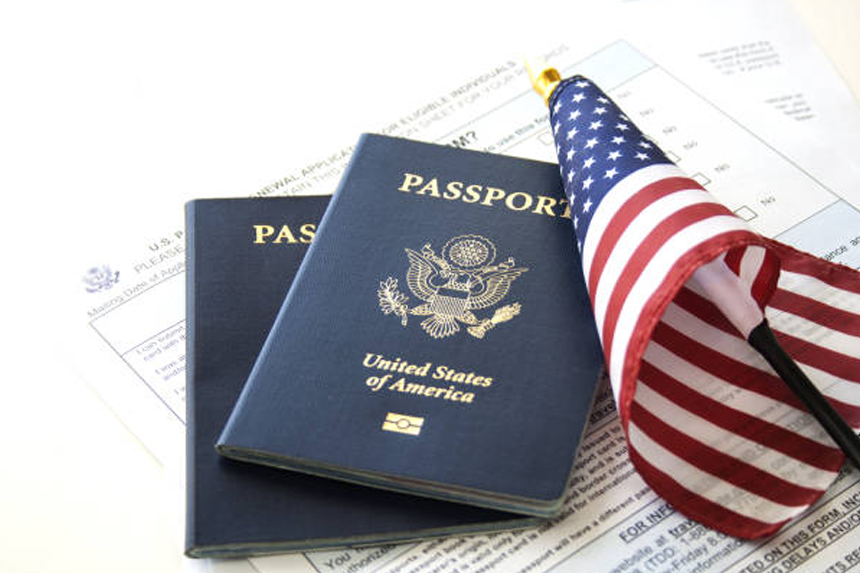The executive order issued by President Donald Trump to terminate birthright citizenship in the US has led to legal battles and a great deal of anxiety among immigrant families.
The US Constitution’s 14th Amendment has maintained the idea that everybody born in the US is a US citizen for almost 160 years. However, Trump has attempted to deny citizenship to children born in the United States to migrants who are either undocumented or on temporary visas as part of his larger efforts to restrict immigration. Discussions concerning birthright citizenship and its place in the country’s immigration laws have been rekindled by this action.
Although the decision has generated a lot of controversy, it seems to have some public support. According to an Emerson College poll, more Americans agree with Trump’s position than disagree with it.
Views on Birthright Citizenship from Around the World
Jus soli (right of the land), another name for birthright citizenship, is not the norm worldwide. About 30 nations, mostly in the Americas, automatically offer citizenship to everyone born within their boundaries, including the United States.
Many countries in Asia, Europe, and portions of Africa, on the other hand, adhere to jus sanguinis, or the right of blood, which states that citizenship is inherited from parents rather than based on place of birth. In several nations, children of permanent residents are granted citizenship through a hybrid system.
Although birthright citizenship is widespread throughout the Americas, each country came to the concept through a unique historical process, according to John Skrentny, a professor of sociology at the University of California, San Diego.
For instance, while some did not, others involved slaves and former slaves. “History is complex,” says Skrentny. In the US, the 14th Amendment was first ratified to address the legal standing of emancipated slaves.
Skrentny contends, however, that the necessity of establishing a nation-state from a former colony was a common element across nations that embraced jus soli.
He claims that in order to make the nation-state governable, they had to be selective about who to include and who to exclude. It guaranteed that native populations, former slaves, and their offspring would be accepted as full members and not be left stateless, while for others it promoted immigration from Europe.
According to him, birthright citizenship served as a remedy during a particular historical epoch, which may now be over.
A Change in Birthright Citizenship Laws Around the World
Due to concerns about immigration, national identity, and so-called “birth tourism,” in which foreign nationals travel to a country specifically to give birth so their children can obtain citizenship, a number of nations have changed their citizenship laws in recent years, restricting or outright banning birthright citizenship.
India
In the past, everybody born in India was automatically granted citizenship. However, the regulation was reinforced because of worries about illegal immigration, especially from Bangladesh. A kid born in India is only eligible for citizenship from December 2004 if both parents are Indian or if one parent is a citizen and the other is not regarded as an undocumented immigrant.
Africa
Under the legal systems of the colonial era, several African countries first adhered to jus soli, but after winning independence, they stopped. In order to grant a child nationality, the majority now require that at least one parent be a citizen or permanent resident.
Asia
The majority of Asian nations have much more stringent citizenship regulations. In countries like China, Malaysia, and Singapore, nationality is largely determined by descent rather than place of birth.
Europe
Significant modifications have also been made to citizenship laws throughout Europe. After a referendum in which 79% of voters adopted a constitutional amendment requiring at least one parent to be a citizen, permanent resident, or legal temporary resident, Ireland—the only nation in the region to permit unrestricted jus soli—banned the practice in 2004.
Concerns that foreigners were coming to Ireland expressly to give birth in order to obtain EU passports for their offspring were used by the Irish government to defend the policy.
Republic of the Dominican
The Dominican Republic saw one of the biggest shifts. Children of unauthorized migrants were prohibited from attaining citizenship by a 2010 amendment to the constitution. Tens of thousands of people, mostly of Haitian heritage, lost their Dominican citizenship when the country’s Supreme Court ruled in 2013 that the decision was retroactive to 1929.
The Inter-American Court of Human Rights and international human rights organizations denounced the action, cautioning that it may leave many people without a state. A law that established a method to restore citizenship to some impacted individuals, especially those of Haitian heritage, was passed by the Dominican Republic in 2014 in response to the outcry.
According to Skrentny, these worldwide changes are a component of a larger pattern. “Mass migration and simple transit, even across oceans, are features of our current period. People can now be strategic about their citizenship as well. This argument is currently taking place in the US for that reason.
Legal Issues and the Constitution of the United States
Civil rights organizations, impacted people, and Democratic-led states and towns filed lawsuits within hours of Trump’s executive order.
The litigants have already gained the support of two federal judges. Most recently, Maryland District Judge Deborah Boardman decided in favor of five expectant mothers who claimed that it would be unconstitutional to deny their children birthright citizenship.
The majority of legal experts concur that Trump lacks the power to revoke birthright citizenship by executive order. According to University of Virginia Law School constitutional expert Saikrishna Prakash, “he cannot make this decision on his own.”
Consequently, the order has been placed on hold while the matter is being handled by the courts.
If the case makes it to the Supreme Court, which has a supermajority of conservative justices, it is still unclear how they would rule on the 14th Amendment. Citing the long-standing exception for diplomats, Trump’s Justice Department has maintained that the amendment only applies to permanent residents. Opponents counter that birthright citizenship should be granted to unauthorized migrants as other US laws already do.
Birthright Citizenship's Future
The larger discussion around birthright citizenship is still going strong in the US and other countries as court cases are being heard. For the time being, the 14th Amendment still ensures that anyone born in the United States are citizens, but it is unclear if the US will join other countries in limiting jus soli.







